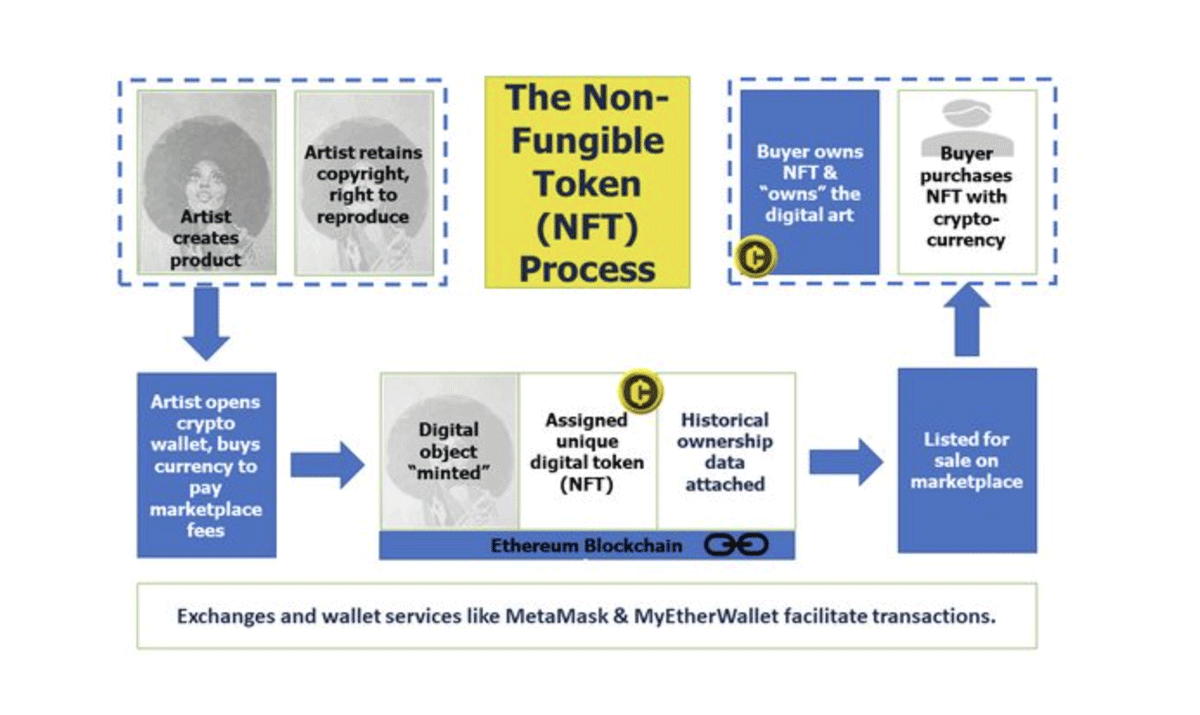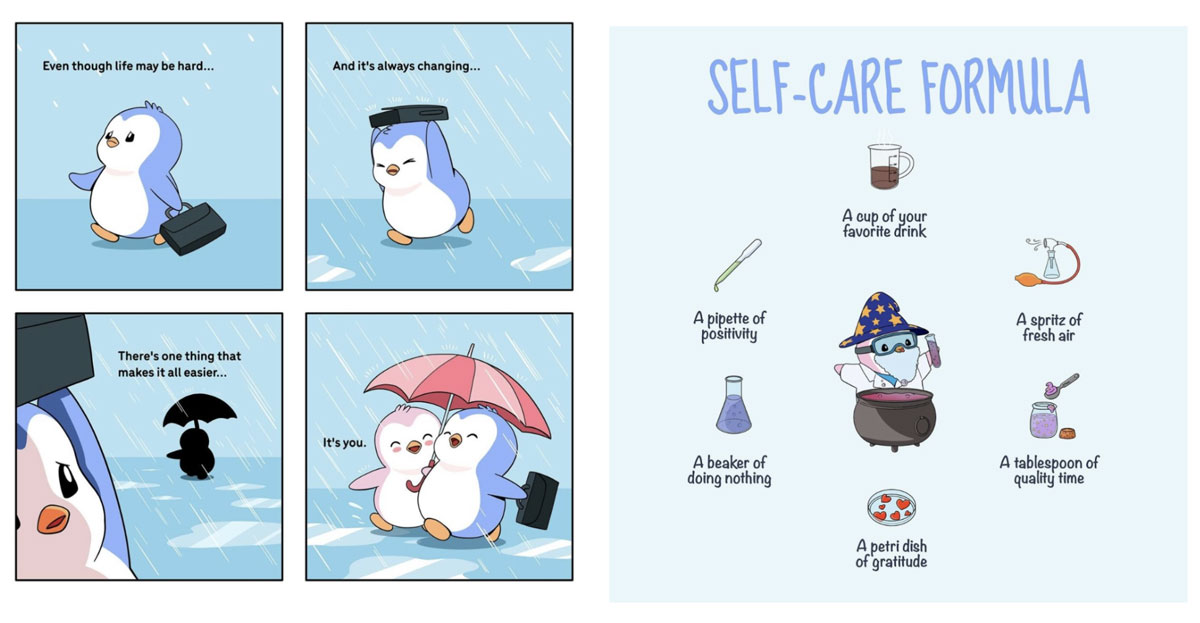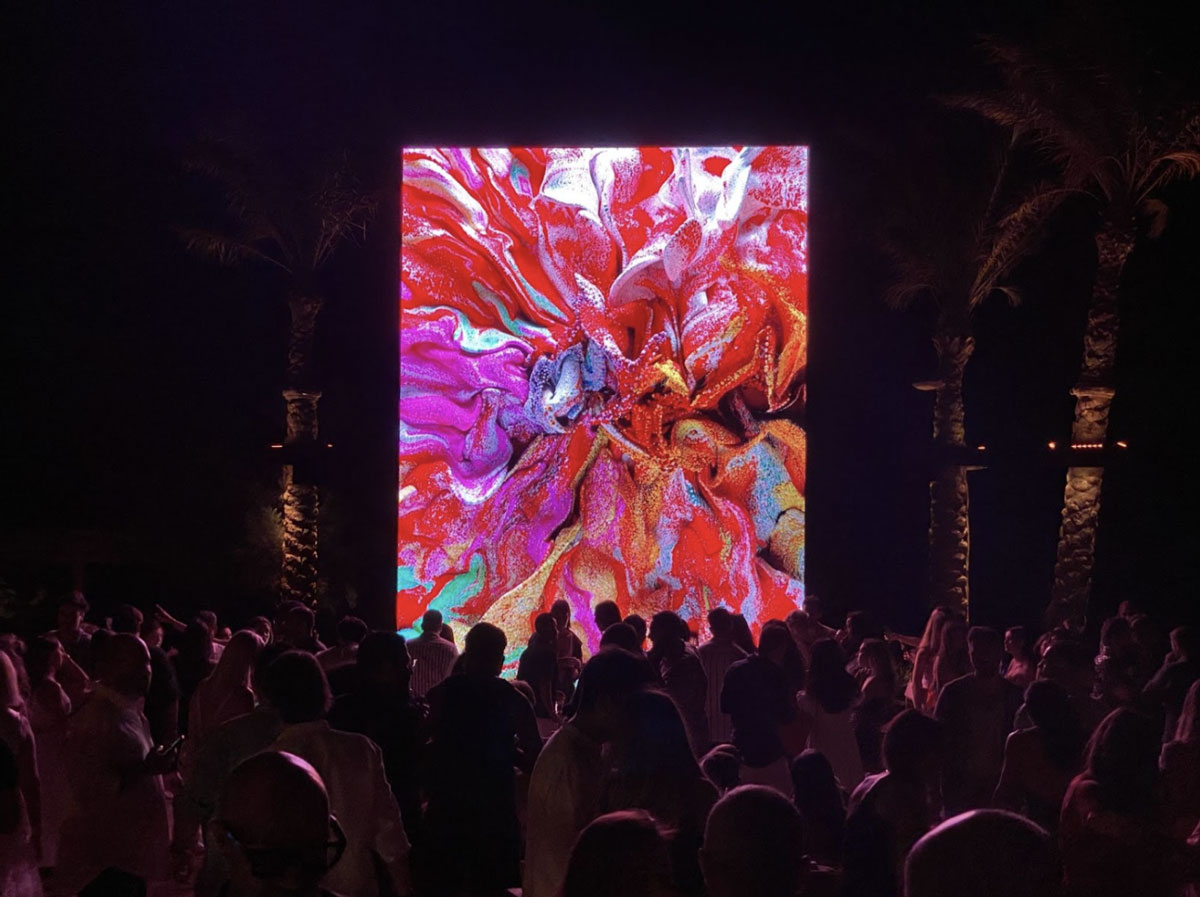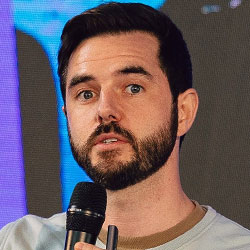Are NFTs dead? Expert panellists at our "The Future of NFTs" panel at CRYPTO2030 don’t think so. NFT sales have decreased, but our panellists believe that they will be utilised in gaming, community development, and more in 2024.
What are NFTs?
In case you're new to the NFT space, let's break down how they function. NFTs are digital assets that represent ownership of unique items or content. They use blockchain technology and blockchain networks to verify and track the history of each item. Blockchains ensure the authenticity and ownership of the digital assets.
NFTs work by providing a secure, immutable record of ownership for digital and real-world items on the blockchain. This technology enables the efficient buying, selling, and trading of assets. It also ensures the authenticity and history of items. Unlike traditional cryptocurrencies such as Bitcoin or Ethereum, which are fungible and interchangeable, each NFT is distinct. They hold a unique digital signature that cannot be exchanged or replicated. Take a look at this diagram (Data Science Central, 2021), to get a visualisation of how NFTs work:

The history of NFTs
While NFTs initially gained popularity in 2021, the precursor to NFTs came in 2018 after the introduction of Ethereum’s ERC-721 Non-Fungible Token Standard. This standard defined the basic properties required for the creation and trading of unique digital assets on the Ethereum blockchain. It set the stage for the first widely recognised NFT project, CryptoKitties, which allowed users to buy, collect, breed, and sell virtual cats. At its peak, the game had over 14,000 daily active users.
2021 was when NFTs exploded in popularity. This exponential growth can be attributed to several factors: the growing mainstream interest in cryptocurrencies; the increased acceptance of digital art and virtual goods; and the desire for digital ownership in an increasingly online world. High-profile sales and celebrity endorsements brought NFTs to prominence. You may have heard of projects such as the Board Ape Yacht Club, whose artworks peaked at a price of a staggering 152 ETH.
The allure of NFTs wasn't just in the high-profile sales but in the democratisation of art and creation they represented. Artists, musicians, and creators found a new avenue to monetise their work directly and form deeper connections with their audiences through NFTs. Mike Shinoda of Linkin Park held an NFT auction of a audio clip from his single Zora. Proceeds went to the ArtCenter College of Design in Pasadena, California. Ringo Starr of The Beatles also participated in the NFT trend, auctioning off an NFT painting collection of 20 artworks. Buyers received signed paintings and virtual meetings with Ringo Starr.
Are NFTs dead?
It's no secret that NFT sales volume has fallen since their 2021 peak – dropping by 63% in 2023 compared to 2022. Subsequent interest in NFTs took a major dip. However, the panellists at “The Future of NFTs” panel at CRYPTO2030 shared that the assumption that NFTs are dead is far from true. Instead, the NFT market is changing, and this brings more use cases in real-world situations.
Our panellists drew parallels between the early days of Google and the current state of NFTs. Google started their journey manually cataloguing online content through time consuming and complex processes, lacking a sophisticated system to improve the functionality of the search platform. Google evolved by refining its algorithms to improve content quality to become the digital giant it is today. Similarly, the NFT ecosystem is becoming more refined, and projects with larger and more beneficial community impact are rising in prominence. This refinement is paving the way for more meaningful and useful applications to emerge.
Panellists at CRYPTO2030 agreed that we are just scratching the surface of unlocking all of the capabilities and use cases of NFTs. Blockchain technology allows NFTs to serve various purposes - from assisting with sales of digital artworks to improving the Web3 gaming world to providing businesses with opportunities to monetise intangible assets.
How NFTs can be utilised in Web3 gaming
Mohamed Ezeldin, Head of Tokenomics at Animoca brands, helped explain how NFTs can be used in Web3 gaming to further increase use cases of NFT technology.
In the gaming industry, NFTs are pioneering a revolutionary approach to gameplay and game ownership by providing developers with the ability to blend entertainment with economic incentives. The two-sided benefits that emerge from incorporating NFTs into gaming satisfies two distinct player personas: those who are gameplay-centric and those who are value-centric.
The focus of those who are game-play centric is on the experience of the game itself. They care more about the game mechanics and their enjoyment of the virtual game world. The objective to satisfy this audience is to continue developing games that are entertaining, while ensuring that the use of blockchain technology in the game enhances rather than detracts from the overall experience.
On the other side of the spectrum, the value-centric persona is more interested in the economic aspects of gaming, particularly in the potential for value extraction from the game. This includes owning NFTs, which can appreciate in value, be traded, or used to earn rewards within the game's ecosystem. Incorporating NFTs into games will be a useful way to attract economically incentivised audiences and offer the best of both worlds to game-players.
NFTs in the corporate and business world
Sara Simeone and Lisa McClory shared about how NFT and blockchain technology can be game-changing for businesses across various industries. They discussed the vast potential of blockchain and NFTs to address real-world challenges, offering solutions that are innovative and useful.
They shared about the untapped potential of using blockchain technology for monetising assets. Many businesses sit on a wealth of such assets, such as real estate space, unaware of their potential value or how to leverage them. Through strategic tokenisation, these assets can be transformed into revenue-generating properties, offering a new avenue for business growth and diversification. In real estate, for example, the concept of 'e-passports' for buildings could revolutionise property management and documentation. E-passports would provide a unified, secure platform for storing and accessing vital information about the property, which could then be used in renting out real estate space.
NFT technology can also be used to tokenise intangible assets, such as data storage. Tokenising intangible assets also marks a significant shift in how businesses can approach digital transformation, and allows businesses to explore additional streams of income. This approach not only ensures the practical application of NFT and blockchain technology but also fosters a transition towards digital business models.
NFT projects to watch in 2024
While previously popular NFT trends such as the Bored Ape Yacht Club have fizzled out, our panellists shared that there are many exciting new projects and developments in the NFT space.
A prominent NFT project at the moment is Pudgy Penguins, one of the first NFT companies to offer substantial licensing opportunities. The project has evolved into a cultural phenomenon, boasting 1.5 million followers across social media platforms Instagram and Twitter. Pudgy Penguins uses emotional marketing by sharing cute daily affirmations, inspirational messages, and other sentimental content to cultivate a wide-reaching influence. Their messaging and branding resonates with a wider audience, extending the appeal of NFTs to those outside the traditional crypto community.

Pudgy Penguins’ leap into the mainstream is further exemplified by the launch of Pudgy Toys in 2,000 Walmart stores across the United States, marking a significant milestone in the bridge between virtual assets and physical merchandise. These "phygital" offerings, which blend physical toys with digital experiences in Pudgy Penguins online world, represent a new frontier in how NFT brands can create immersive, cross-platform experiences.

Equally impressive is the innovative use of NFTs by indigenous communities to fund improvements in infrastructure, and leverage NFTs for social and environmental good. The Yawanawá community of Brazil and new media artist Refik Anadol created a Genesis NFT collection, “Winds of Yawanawá”. The collection featured unique video and sound compilations that encapsulated the essence of the Yawanawá culture and their intimate connection with the Amazon rainforest.

Through the successful exhibition and sale of these NFTs at Annabel's club in London, the Yawanawá community has raised US$3.9 million. These funds helped build improvements in infrastructure within their territory, demonstrating the potential of NFTs to have a real-world impact. The collection is a pioneering example of how the convergence of art and technology can pave the way for a future where digital innovations contribute to the well-being of our planet and its diverse cultures.
Major corporations are also entering the NFT space with innovative projects. Coca-Cola, for example, launched an NFT collection in 2023. The collection utilised a unique blend of iconic brand imagery, classic art, and contemporary art in the digital realm to entice collectors. A large global brand participating in the NFT space signifies the growing acceptance and potential of NFTs to create new forms of engagement and value.
NFT Experts to Follow
At CRYPTO2030, the brightest and most innovative minds in Web3 came together to exchange ideas and propel the advancement of the Web3 space.
To stay updated on NFT news, follow our panellists to see their latest projects in the industry.






